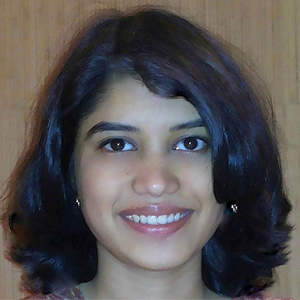A research journey spanning three countries
Studying and working in a foreign country can be an enriching experience. No one understands this better than Rahul Kumar, who has studied in not one but three countries.
Kumar grew up in his native state of West Bengal, India. From a young age, he said, he was interested in understanding the whys behind disease pathologies. This inspired him to pursue a dual bachelor’s–master’s degree at the prestigious Indian Institutes of Science Education and Research, known as IISER, in Kolkata. There, he majored in biological sciences with a chemistry minor.

“I greatly appreciated how IISER helped me build foundational scientistic knowledge and critical thinking,” Kumar said, "particularly the vibrant lab environment of Dr. Jayasri Das Sarma, where I did my master's thesis."
While he enjoyed scientific learning, Kumar was unsure whether pursuing a Ph.D. would be the right career step. A three-month research internship at the University of Southern California proved to be the turning point. In Jennie Chen’s lab, he studied the biosynthesis and cell biology of the protein rhodopsin.
“Dr. Chen gave me the freedom to explore and think creatively,” he said. “I got to design experiments to answer different research questions. It was a life-changing experience.”
Kumar then joined Peter McPherson’s lab at McGill University in Quebec, Canada, as a Ph.D. student. His doctoral work focused on studying the DENN domain containing proteins. Many of the mutations in these proteins cause neurodevelopmental disorders.
"A part of my studies was carried out on induced pluripotent stem cells derived from patient samples," Kumar said. “This was particularly exciting, as such findings will have clinical relevance for disease treatment.”
Kumar has collaborated on other projects, one of which earned him a Journal of Biological Chemistry Tabor award. He is on track to defend his Ph.D. next fall and plans to pursue postdoctoral research.
“I have learned so much in my current lab,” he said. “As a result, I feel prepared to step out of my comfort zone and explore newer avenues in cell biology.”
Outside the lab, Kumar enjoys participating in teaching opportunities at high schools and hiking with his friends. He has thoroughly enjoyed the experience of living abroad and hopes his next research stint will give him a new location to explore.
The pandemic presents a research opportunity
The COVID-19 pandemic presented an unexpected collaborative opportunity for Rahul Kumar and a fellow graduate student, Arbim Bayati. Together they investigated the molecular process by which SARS-CoV-2, the causative virus of COVID-19, gains access into cells.
Kumar produced the purified SARS-CoV-2 spike protein (the part responsible for the infectivity of the virus) that Bayati used to determine uptake of this protein by the cell. Simultaneously, Kumar performed infectivity experiments in cells using a SARS-CoV-2 pseudovirus (a harmless, nonreplicating virus in which the surface protein is replaced with the SARS-CoV-2 spike protein).
The researchers found that after engaging with the plasma membrane, SARS-CoV-2 undergoes a molecular process called clathrin-mediated endocytosis to enter the cell. Furthermore, Kumar demonstrated that when clathrin protein was removed, the infectivity of SARS-CoV-2 drastically reduced.
This work uncovered the mechanism by which SARS-CoV-2 enters a cell and demonstrates the importance of this process in viral infectivity. The findings were published in the Journal of Biological Chemistry.
Enjoy reading ASBMB Today?
Become a member to receive the print edition four times a year and the digital edition monthly.
Learn moreGet the latest from ASBMB Today
Enter your email address, and we’ll send you a weekly email with recent articles, interviews and more.
Latest in People
People highlights or most popular articles

Sketching, scribbling and scicomm
Graduate student Ari Paiz describes how her love of science and art blend to make her an effective science communicator.

Embrace your neurodivergence and flourish in college
This guide offers practical advice on setting yourself up for success — learn how to leverage campus resources, work with professors and embrace your strengths.

Survival tools for a neurodivergent brain in academia
Working in academia is hard, and being neurodivergent makes it harder. Here are a few tools that may help, from a Ph.D. student with ADHD.

Quieting the static: Building inclusive STEM classrooms
Christin Monroe, an assistant professor of chemistry at Landmark College, offers practical tips to help educators make their classrooms more accessible to neurodivergent scientists.

Hidden strengths of an autistic scientist
Navigating the world of scientific research as an autistic scientist comes with unique challenges —microaggressions, communication hurdles and the constant pressure to conform to social norms, postbaccalaureate student Taylor Stolberg writes.

Richard Silverman to speak at ASBMB 2025
Richard Silverman and Melissa Moore are the featured speakers at the ASBMB annual meeting to be held April 12-15 in Chicago.

